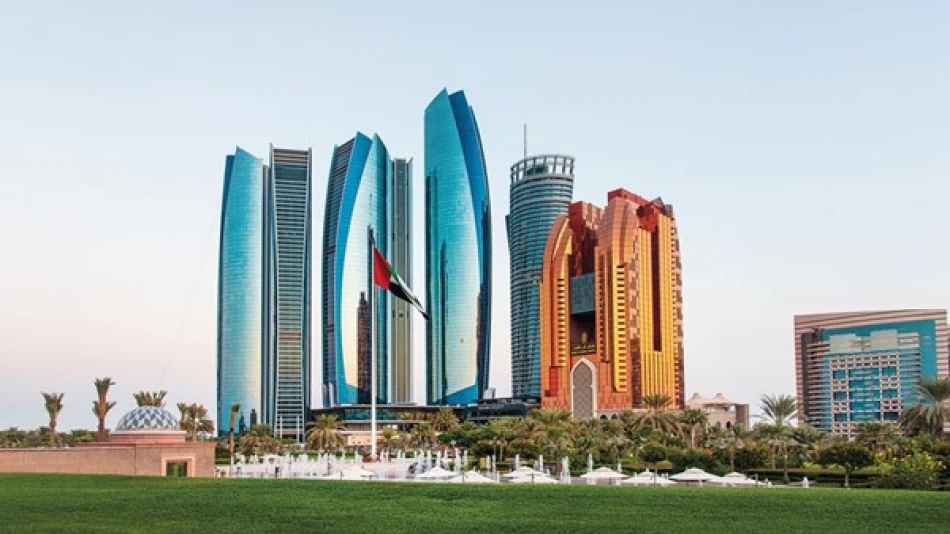
Experts Forecast Robust 20% Growth in Winter Tourism Demand
UAE's Extended Winter School Break Set to Boost Tourism Revenue by 30%
The UAE's decision to extend winter school holidays to a full month is expected to drive tourism demand up by 20-30% this winter season, according to hospitality industry experts. The move strategically aligns with peak winter tourism and the sixth edition of the "World's Most Beautiful Winter" campaign, positioning the Emirates to capitalize on both domestic family travel and international visitor flows during the region's most favorable weather period.
Strong Foundation: UAE Tourism Already Surging
The optimistic projections build on already impressive performance metrics. In the first quarter of 2025, UAE hotel establishments generated approximately 13.5 billion dirhams in revenue, hosting over 8.4 million guests—a 2% increase compared to the same period in 2024. The sector recorded 29.3 million hotel nights with an occupancy rate of 81%, while 2024 saw total hotel guests reach 30.8 million, up 10% from 28 million in 2023.
Domestic Tourism Takes Center Stage
Alaa Al Ali, CEO of Nirvana Travel and Tourism, emphasized that the extended break will significantly boost inter-emirate domestic tourism. "The extension will enhance domestic tourism activity between the UAE's emirates, which are distinguished by their diverse tourist and beach destinations, recreational and cultural landmarks, in addition to moderate winter weather," Al Ali stated.
This domestic focus represents a strategic shift that many tourism markets globally have embraced post-pandemic. Countries like Thailand and Turkey have similarly prioritized domestic tourism as a stable revenue base, less susceptible to international travel disruptions.
Industry Players See Immediate Impact
Hotel executives are already witnessing booking pattern changes. Sherif Madkour, General Manager of Media Rotana Dubai, noted that domestic tourism recorded 20% growth during winter 2024, driven by increasing demand for local destinations and attractive hotel packages.
The timing appears calculated: the extended break coincides with Europe's coldest months, when the UAE's 20-25°C temperatures become particularly appealing to international visitors seeking winter sun destinations.
Strategic Alignment with Global Tourism Trends
Noel Masoud from August Hotel Consulting highlighted a crucial advantage: unified school holidays enable families to plan trips in advance, facilitating early hotel and travel bookings. This mirrors successful tourism strategies in markets like Singapore, where coordinated holiday periods maximize both domestic and inbound tourism efficiency.
International Market Implications
Elif Yazoglu, General Manager of DoubleTree by Hilton - Jumeirah Beach, noted that while some families may travel abroad early in the holiday season, many are expected to return before New Year's Eve, as the UAE remains one of December's most attractive destinations due to its excellent weather and world-class experiences.
This pattern suggests the UAE is positioning itself not just as a winter destination, but as a holiday season anchor point—similar to how Dubai has become a New Year's Eve hub rivaling Sydney and London.
Market Positioning Against Regional Competitors
The move puts pressure on regional competitors like Qatar, Saudi Arabia, and Oman, who are also investing heavily in winter tourism infrastructure. However, the UAE's established tourism ecosystem—from theme parks to luxury resorts—provides a significant competitive advantage that newer destinations struggle to match quickly.
Economic Ripple Effects
The tourism boost extends beyond hotels to airlines, retail, and entertainment sectors. With the UAE's tourism industry contributing approximately 12% to GDP, a 30% winter season increase could generate substantial economic momentum heading into 2025.
For investors, this represents validation of the UAE's tourism infrastructure investments over the past decade. The ability to generate significant demand through policy adjustments demonstrates the maturity and resilience of the Emirates' tourism ecosystem.
The extended winter break strategy showcases how coordinated policy decisions can amplify existing tourism strengths, potentially setting a template for other destinations seeking to maximize seasonal advantages while building domestic tourism resilience.
Most Viewed News

 Layla Al Mansoori
Layla Al Mansoori






